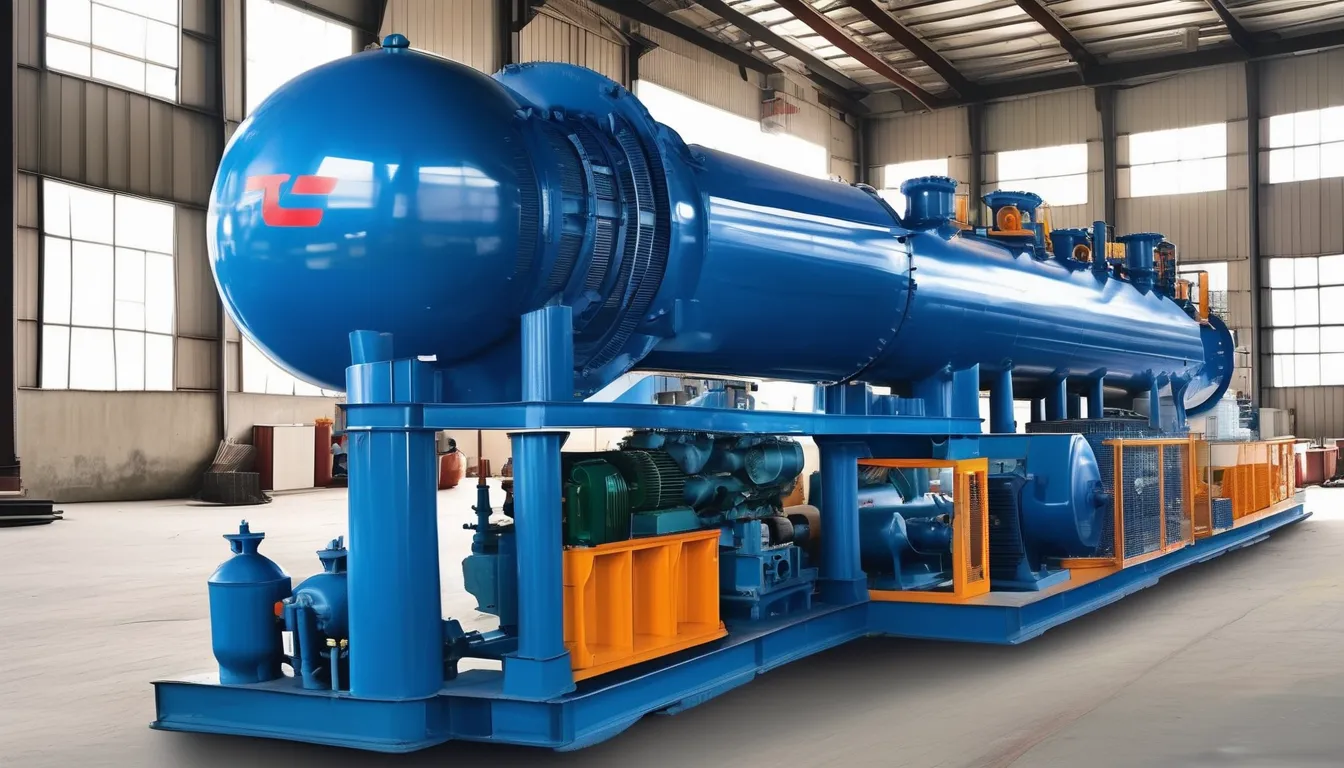When you consider the advancements in turbo expander technology, China’s role stands out significantly. You’ll find that Chinese firms are not just adopting innovations; they’re shaping the future of energy efficiency and sustainability with impressive research and development efforts. This shift is evident across various industries, from petrochemicals to steel production. As you explore the implications of these developments, you might start to wonder how these technologies could redefine energy systems globally and what challenges lie ahead in this rapidly evolving landscape.
Overview of Turbo Expanders
Turbo expanders are essential devices in various industrial applications, particularly in the field of energy conversion. These machines convert energy from high-pressure gas into mechanical energy, which you can then use to drive turbines or compressors. When you allow gas to expand, it cools down significantly, enabling you to harness the energy efficiently.
You’ll find turbo expanders mainly operating in cryogenic processes, where they play a crucial role in liquefying gases, such as natural gas. By utilizing the principles of thermodynamics, these devices enable you to achieve optimal energy recovery while minimizing waste.
When it comes to design, turbo expanders can vary significantly, but they generally consist of a rotor, stator, and various seals. The rotor’s rotation, driven by the expanding gas, is what creates the work output.
You’re looking at a highly efficient and compact solution that enhances energy conversion processes. In applications where energy efficiency is paramount, understanding the mechanics and advantages of turbo expanders can lead to significant operational improvements.
Their ability to recover energy from expanding gases makes them a vital component in modern industrial settings.
Applications in Industry
In many industries, the applications of turbo expanders are pivotal for enhancing energy efficiency and optimizing processes. You’ll find these devices playing a crucial role in natural gas processing, where they help in recovering energy from high-pressure gas streams. By expanding the gas, they reduce pressure and temperature, allowing for efficient energy conversion.
In the petrochemical sector, turbo expanders are used in cryogenic applications for liquefying gases. This process is vital, as it allows for better storage and transportation of products like LNG.
You may also encounter turbo expanders in refrigeration systems, where they aid in cooling processes by converting thermal energy into mechanical energy.
Another significant application is in power generation, where they assist in recovering waste heat from industrial processes or gas turbines, improving overall energy output.
In the steel industry, turbo expanders help in energy recovery during the production process, significantly reducing operational costs.
Technological Innovations
Recent advancements in turbo expander technology are revolutionizing energy efficiency across various sectors. You’ll find that innovations such as advanced materials, improved aerodynamic designs, and sophisticated control systems are pushing the boundaries of performance. These developments not only enhance operational efficiency but also minimize energy losses, which is crucial in today’s competitive landscape.
Here’s a quick overview of some key technological innovations:
| Innovation Type | Description |
|---|---|
| Advanced Materials | Use of lightweight, durable alloys to reduce wear and tear, extending the life of turbines. |
| Aerodynamic Designs | Optimized blade geometries that improve flow dynamics, leading to higher efficiency. |
| Smart Control Systems | Integration of AI and IoT for real-time monitoring and adaptive performance adjustments. |
With these breakthroughs, you can expect turbo expanders to offer more reliable and efficient solutions for power generation and industrial processes. The enhanced designs are crucial for meeting the growing demand for sustainable energy solutions. Embracing these innovations will undoubtedly position you ahead in the ever-evolving energy landscape.
Benefits of Turbo Expanders
The advancements in turbo expander technology bring a host of benefits that can significantly enhance energy efficiency and operational performance. When you implement turbo expanders in your systems, you’ll notice a marked reduction in energy consumption. These devices recover energy from high-pressure gas streams, converting it into usable work, which helps lower your overall operating costs.
Additionally, turbo expanders contribute to improved process reliability. By stabilizing pressure and temperature variations, they help maintain optimal conditions in your system, reducing the risk of equipment failures.
You’ll also appreciate their compact design, which allows for easier installation and integration into existing setups without extensive modifications.
Another significant advantage is the reduction of greenhouse gas emissions. By using turbo expanders to recover energy, you’re not just saving money; you’re also minimizing your environmental impact. This aligns with global sustainability goals, making your operations more eco-friendly.
Lastly, the low maintenance requirements of turbo expanders mean less downtime for your operations. With fewer moving parts than traditional systems, they deliver reliable performance with minimal upkeep.
Future Trends in China
As we look ahead, China is poised to become a leader in turbo expander technology, driven by its commitment to energy efficiency and environmental sustainability.
You’ll notice a significant increase in investments aimed at research and development, which will enhance the efficiency and reliability of these systems.
Moreover, the country is likely to focus on integrating advanced materials and smart technologies, such as AI and IoT, into turbo expander designs.
This integration will help optimize performance in real-time, allowing for better energy management in various industries, from oil and gas to renewable energy.
You can also expect collaboration between Chinese companies and international firms, fostering innovation and knowledge exchange.
This synergy will accelerate the adoption of turbo expanders in various applications, including waste heat recovery and refrigeration systems.
In addition, as global regulations tighten around emissions, China’s advancements in china Turbo Expander technology will play a crucial role in meeting these standards.
Conclusion
In conclusion, China’s advancements in turbo expander technology are reshaping energy efficiency across various industries. By focusing on innovative materials and smart control systems, you’re witnessing a significant leap in performance and sustainability. As these technologies continue to evolve, you’re not just contributing to better energy recovery; you’re also aligning with global emissions goals. Embrace the future of turbo expanders, and you’ll be part of a greener, more efficient industrial landscape.

